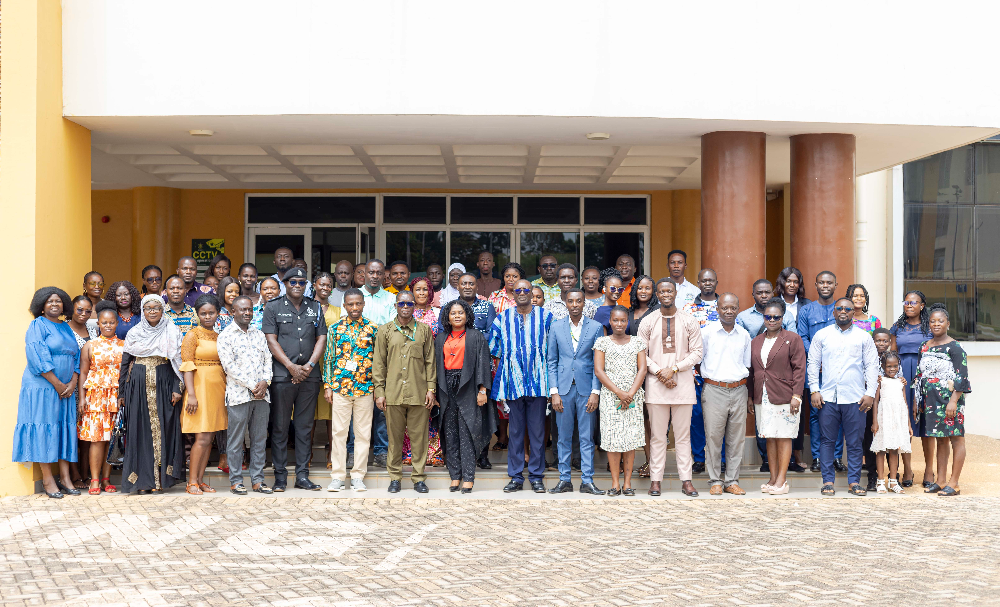The Kwame Nkrumah University of Science and Technology, Kumasi, has addressed the increasing complexities of hospital-based social work practice in Ghana by organizing a short course on Hospital Social Work.
Spearheaded by the KNUST Hospital Social Work Team in collaboration with the College of Humanities and Social Sciences and the Centre for Capacity Building and Innovation, the three-day intensive training was funded by the KNUST Research Fund (KReF).
It brought together practicing and aspiring social workers nationwide to bridge knowledge gaps and equip them with practical skills relevant to modern hospital environments.
Project co-lead, Dr. John Boulard Forkuo, highlighted a critical issue: the lack of defined role descriptions for social workers in Ghana, which demands urgent attention. “We saw that there are so many people in the hospitals without a role description. And this is the problem we’ve identified,” he explained.
Professor Kwadwo Ofori-Dua, the project lead, emphasized the crucial role of social work within healthcare settings.
“This work aims to demonstrate the role of social work within the hospital setting. Human beings are social beings, and disease might be a social issue and may cause a social issue, and the social worker takes care of this,” he stated.
Dr. Joseph Abu Sakyi, Deputy Medical Director of the University Health Services, lauded the course as “timely and important” for enhancing the quality of hospital social work.
“Service quality is about responsiveness, reliability, tangibles, and empathy,” he noted. “How can you be responsive when you don’t have the right human resource? It is trained human resource that can deliver responsive care.” He urged participants to actively engage with the training and apply their learning, emphasizing that social workers' responsibilities extend beyond financial aid to encompass proactive and reliable support.
The comprehensive course covered the roles and responsibilities of hospital social workers, ethical standards, professional codes of conduct, and after-discharge support services for patients reintegrating into their communities.
Speaking on behalf of the Provost of the College of Humanities and Social Sciences, Professor Charles Marfo, Professor Samuel Adu-Gyamfi underscored the vital synergy between disciplines in healthcare delivery.
“There is always that synergy that must come on board,” he said. “This is groundbreaking to see social science actors working with doctors and other health professionals within the same sphere.”
He encouraged participants to disseminate their newly acquired knowledge, asserting that holistic healing necessitates such cross-disciplinary engagement.
Ms. Linda Nana Esi Aduku, Assistant Grants and Research Manager, representing the Director of the Office of Grants and Research, Professor Philip Antwi-Agyei, reaffirmed the office’s support for such capacity-building initiatives.
She proposed the integration of e-learning to broaden the course’s reach. “We need to look at scaling this up,” she suggested. “Introducing online learning will allow people from different parts of the country to participate and help build national capacity.”
A central focus of the training was on psychosocial counselling and the critical need for effective collaboration within multidisciplinary healthcare teams to provide comprehensive, patient-centred care.

















